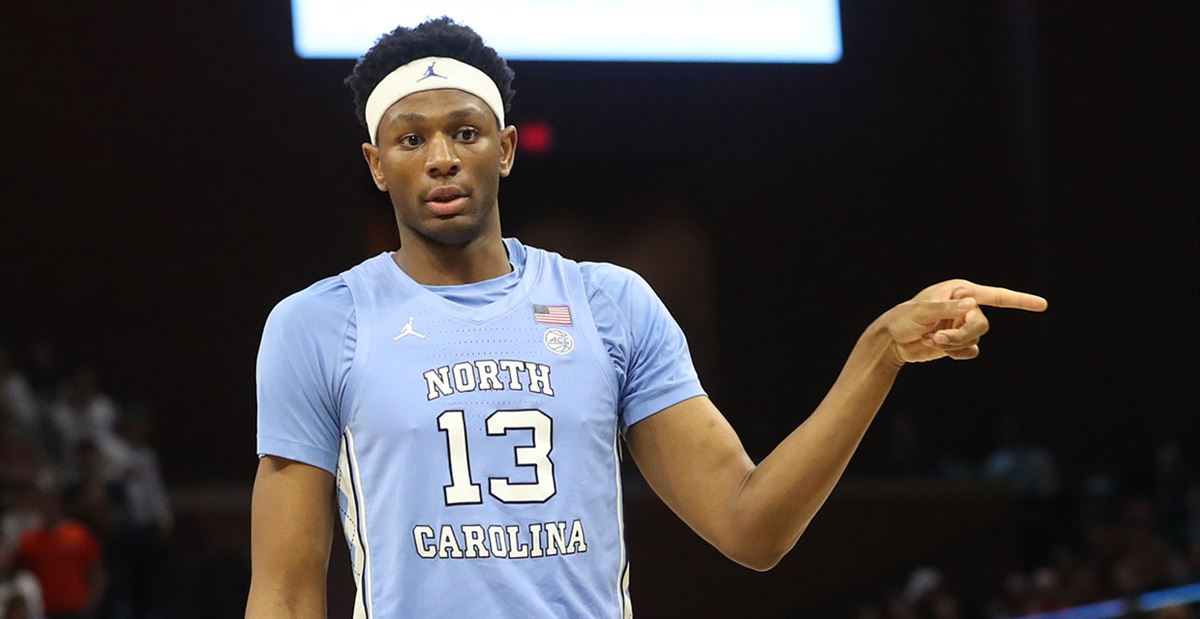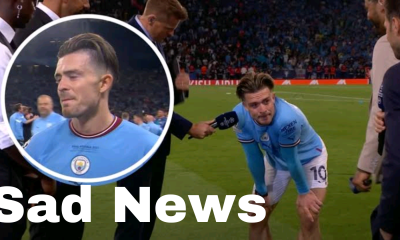North Carolina Tar Heels
Done Dael: Player Jalen Washington of the North Carolina Tar Heels was sold for $11.5 million.
**Jalen Washington’s Record-Breaking Transfer: North Carolina Tar Heels Player Sold for $11.5 Million**

In a groundbreaking move that has stunned the sports world, Jalen Washington, a standout player for the North Carolina Tar Heels, has been sold for a staggering $11.5 million. This record-breaking transfer marks a significant shift in the landscape of collegiate and professional sports, reflecting both the growing commercial value of top athletes and the evolving dynamics of sports management.
**The Record-Breaking Transfer**
Jalen Washington, a rising star in college basketball, has long been on the radar of scouts and sports executives. Known for his exceptional skills on the court, Washington’s performance has captured the attention of major teams and sponsors alike. His transfer for $11.5 million is a historic event, surpassing previous records and setting a new benchmark for player valuations in collegiate sports.
Washington, a versatile forward with impressive statistics, has been a key player for the North Carolina Tar Heels. His contributions to the team’s success have been undeniable, and his potential for future achievements has made him a highly sought-after asset. The decision to transfer him for such a substantial amount underscores his value not just as a player, but as a significant investment for the acquiring team.
**The Impact on Collegiate Sports**
The sale of Jalen Washington for $11.5 million is a game-changer for collegiate sports, illustrating the increasing commercialization and professionalization of college athletics. This development raises several questions about the future of college sports, including the implications for player compensation, team dynamics, and the role of educational institutions in athlete management.
Historically, collegiate athletes have been restricted in their earning potential, with strict regulations governing their financial compensation. However, recent changes in legislation and shifting attitudes towards player rights have paved the way for new opportunities. The sale of Washington highlights the growing recognition of athletes as valuable assets whose worth extends beyond traditional scholarship benefits.
**Implications for Player Compensation**
Washington’s transfer is emblematic of a broader trend in which athletes are beginning to receive compensation that reflects their market value. The NCAA’s recent reforms, including the endorsement rights granted to college athletes, have opened the door for players to capitalize on their talents in ways that were previously unimaginable. Washington’s record-breaking sale is a direct result of these changes, demonstrating the financial potential that can be unlocked when athletes are given more freedom and opportunities.
As more players follow in Washington’s footsteps, the landscape of college sports is likely to undergo significant changes. Schools and athletic programs may need to adapt their strategies for recruiting, retaining, and managing talent, as the financial stakes continue to rise. The focus will increasingly shift from traditional recruitment methods to strategic investments in players who can deliver both on and off the court.
**Team Dynamics and Strategy**
The sale of a high-profile player like Washington also has implications for team dynamics and strategic planning. For the North Carolina Tar Heels, losing a key player represents a significant challenge. The team will need to reassess its roster, develop new strategies, and potentially recruit new talent to fill the void left by Washington’s departure.
On the flip side, the team acquiring Washington for $11.5 million is making a substantial investment in their future success. The acquisition of a top-tier player like Washington can provide an immediate boost to the team’s performance, enhance their competitive edge, and generate increased fan engagement and revenue. This strategic move reflects a growing trend in sports where financial investments are made with the expectation of substantial returns in terms of performance and profitability.
**The Role of Sports Management and Agencies**
The unprecedented sale of Jalen Washington also highlights the evolving role of sports management and agencies. As player valuations increase, the need for skilled management and strategic representation becomes more critical. Agents and sports management professionals are now tasked with navigating complex negotiations, maximizing player value, and ensuring that athletes receive fair compensation for their talents.
In Washington’s case, his management team has played a crucial role in negotiating the record-breaking transfer. Their expertise in handling high-profile deals and leveraging Washington’s market value has been instrumental in securing such a lucrative agreement. This development underscores the importance of professional representation in the modern sports industry and the impact it can have on player careers and financial outcomes.
**Future Prospects and Industry Trends**
The sale of Jalen Washington for $11.5 million is more than just a record-breaking transaction; it represents a shift in the broader trends and future prospects of the sports industry. As athlete valuations continue to rise, we can expect to see more high-profile transfers and substantial financial deals in the coming years.
The growing commercialization of sports, coupled with changes in regulations and attitudes towards athlete compensation, will likely drive further evolution in the industry. Schools, teams, and sports organizations will need to adapt to these changes, embracing new strategies and approaches to remain competitive and capitalize on emerging opportunities.
**Conclusion**
Jalen Washington’s transfer for $11.5 million is a landmark event in the world of sports, marking a significant shift in how athletes are valued and compensated. This record-breaking deal not only highlights Washington’s exceptional talent and market value but also underscores the changing dynamics of collegiate and professional sports. As the industry continues to evolve, the implications of this transfer will likely reverberate across various aspects of sports management, player compensation, and team strategy, shaping the future of athletic endeavors for years to come.

-

 Manchester City9 months ago
Manchester City9 months agoCongratulations Phil Foden side chick just gave birth to a baby boy,open to hear Phil Foden speech from conference
-

 Manchester City8 months ago
Manchester City8 months agoGood New: Erling Haaland UK side chick just delivered a baby boy today, Haaland named the child after Pep Guardiola 🙄
-

 Manchester City8 months ago
Manchester City8 months agoReport: Manchester City attacking midfielder De Bruyne ‘desperate’ to join English football giants
-

 Manchester City9 months ago
Manchester City9 months agoCongratulations: Erling Haaland become a father as side chick delivered baby boy earlier today by BBC..
-

 Manchester City7 months ago
Manchester City7 months agoFootage of Ederson’s Angry Reaction to Pep Guardiola made Phil Foden to send him a warning massage,Pep was shocked when he saw what Phil wrote.
-

 Manchester City6 months ago
Manchester City6 months ago“Everyone at Man City wants me out, even the fans want me out
-

 Uncategorized6 months ago
Uncategorized6 months agoSky Sport Confirmed Tottenham has signed Manchester City best player€66m rated,Ange Postecoglou smile
-

 Manchester City8 months ago
Manchester City8 months agoCongratulations to Phil Foden as he bought a new private jet.